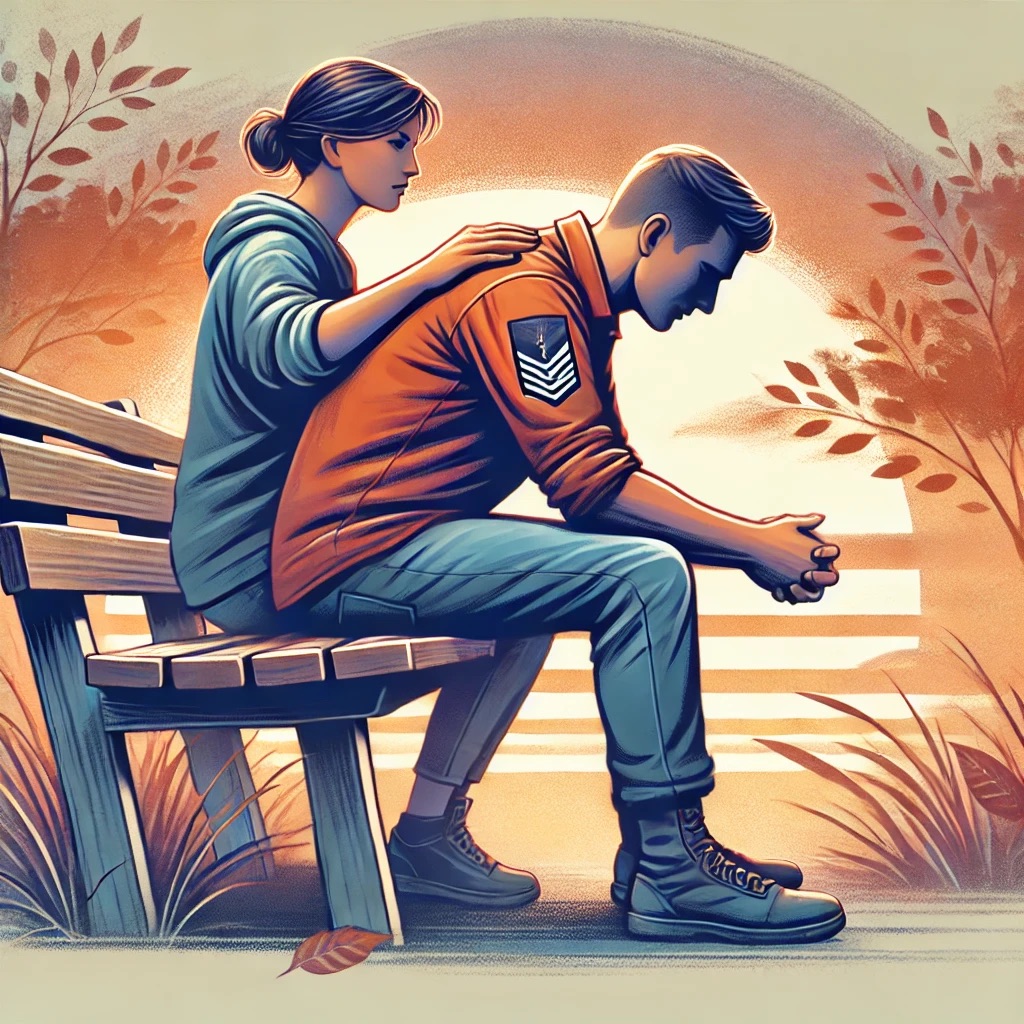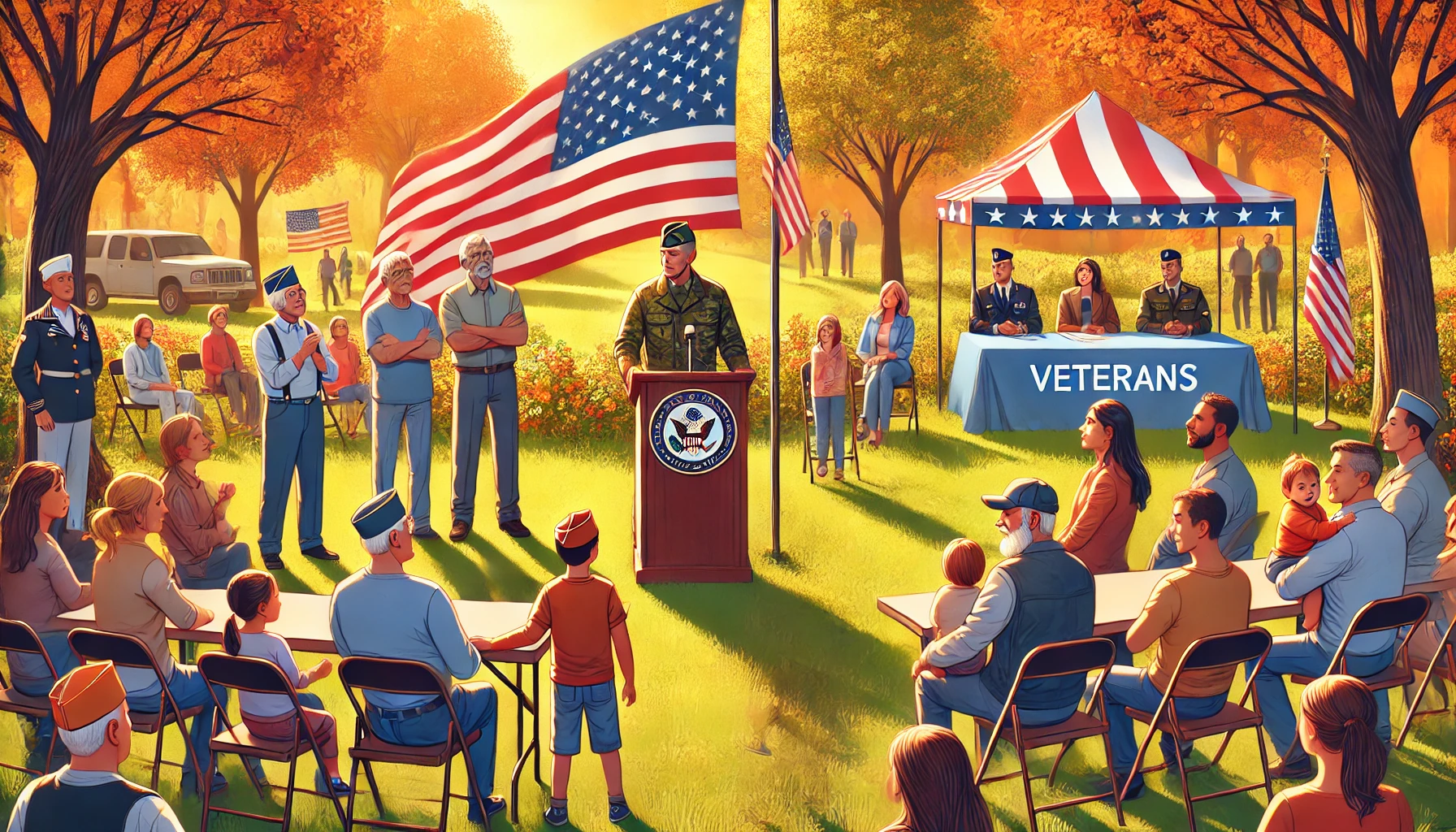When someone has been “unfairly traumatized by life,” it can feel overwhelming to figure out how to support them. Whether they’re a veteran, a survivor of abuse, or someone facing mental health challenges for other reasons, the key to helping is rooted in love, patience, and understanding. I was asked for ways to help, so here’s a guide to help you offer support in a compassionate and meaningful way:
1. Understand the Fears
For someone struggling with PTSD, fears can be all-encompassing. They aren’t just abstract worries; they often feel like imminent threats to our stability and identity. Veterans, for example, might fear losing their carry permits, their freedom, or being involuntarily hospitalized.
These fears might seem irrational to an outsider, but to us, they’re tied to a deep-seated sense of vulnerability. Acknowledge these fears without dismissing or minimizing them. Don’t tell us we’re “silly” or “overreacting”—instead, validate our concerns and reassure us in a calm, non-judgmental way.
Remember: We’re not always angry—we might just be overwhelmed. We’re not always scared—we might just be hypervigilant. Understanding these nuances can help you approach us with empathy rather than frustration.
2. Listen Without Comparing
One of the most important things you can do is simply listen. Hear our story without interrupting, judging, or offering solutions right away. Everyone’s trauma is unique, and the way we cope with it is deeply personal.
Avoid comparing our struggles to others’. Telling us about someone who “had it worse” or “overcame their issues” doesn’t motivate us—it can deepen our shame. For instance, I’ve heard stories of veterans who overcame incredible odds, like climbing mountains despite losing limbs. While inspiring, comparisons like that made me feel even weaker in my own struggles.
Instead, focus on understanding our story. Ask questions if you’re unsure, but never assume you know what we’re feeling or experiencing. Respect that our journey is ours alone.
3. Recognize and Challenge the Stigma
Mental health challenges don’t bleed. You can’t see them the way you’d see a broken arm or a deep cut, but they’re just as real. Unfortunately, stigma often prevents people from seeking help.
Many of us fear that admitting we need help will lead to rejection or exclusion. In fact, I’ve experienced this personally—after checking myself into a hospital for help, someone suggested I shouldn’t return to a group I was part of. Would they have said that if I’d needed stitches? Probably not.
Your role as a supporter is to challenge this stigma. Reassure us that seeking help doesn’t make us “crazy” or “broken.” It means we’re taking steps to heal. Treat mental health care as you would any other medical need.
4. Address the Fears Around Seeking Help
Fear of losing freedoms or autonomy often holds us back from seeking help. We might worry that asking for support will lead to losing our rights, like gun ownership, or being institutionalized.
Help us explore these fears and see how realistic they are. Explain that seeking help doesn’t automatically mean losing freedoms—unless there’s a real and present danger to ourselves or others. This “danger threshold” is the key factor, and knowing this can ease some of our anxiety.
You can also help by researching resources together. Show us how we can access confidential support or find professionals who understand trauma and PTSD. Having someone guide us through the process can make it feel less daunting.
5. Offer Human Connection
When our emotions feel out of control, human connection can be a lifeline. Something as simple as a hug, a hand on the shoulder, or sitting quietly with us can make a world of difference.
Physical touch—when welcomed—can be grounding. It reminds us that we’re not alone, that someone cares, and that we’re part of a shared human experience. Even if we seem resistant to help, these small gestures can plant the seeds of trust and healing.
Remember, though, that not everyone is comfortable with touch. If that’s the case, simply being present—physically or emotionally—can still provide immense comfort.
6. Be Patient and Loving
Healing is a process, and it’s not always linear. There will be setbacks, resistance, and times when it feels like progress isn’t happening. That doesn’t mean your support isn’t making a difference.
Some of us may not be ready to accept help, and that’s okay. The most important thing you can do is consistently show that you’re there for us. Let us know we’re seen, heard, and loved, even when we pull away. Your steady presence can be the anchor we need to find our way back when we’re ready.
A Special Note About Motivation:
While motivational speeches or stories can be uplifting, they’re not always what we need. Often, we just need to know that we’re enough as we are, and that our struggles don’t define our worth. Save the motivational talks for when we ask for them—and focus on offering acceptance and understanding in the meantime.
Final Thoughts
Mental health challenges and PTSD are deeply personal journeys, but no one should have to face them alone. By listening, validating, and showing unconditional love, you can make a difference in someone’s life.
Remember: It’s not about fixing us or making our pain go away. It’s about walking alongside us, showing that you care, and helping us see that healing is possible—on our terms and in our time. See you out there.

Discover more from Inside the mind of Wade
Subscribe to get the latest posts sent to your email.



